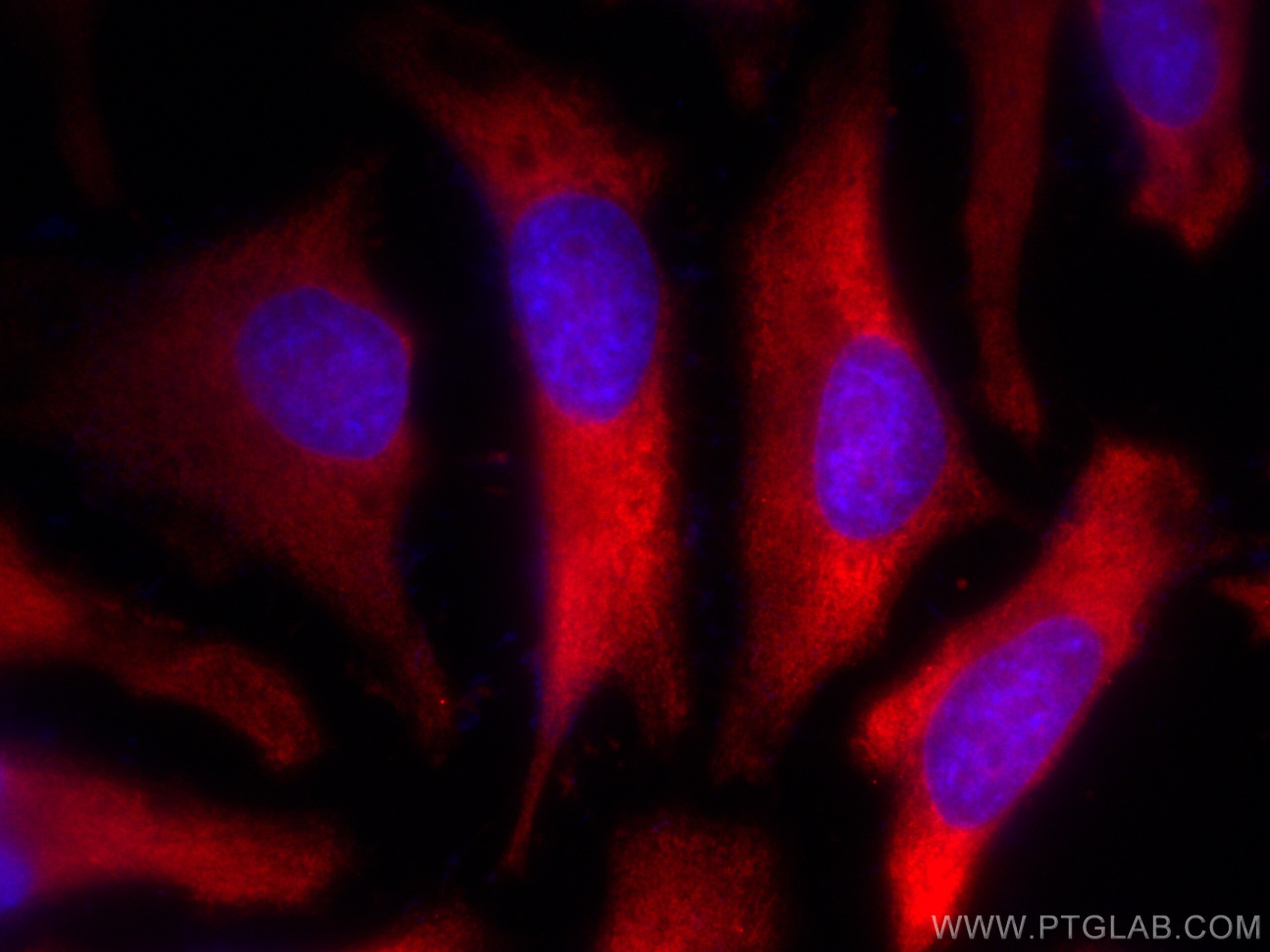Tested Applications
| Positive IF/ICC detected in | HeLa cells |
Recommended dilution
| Application | Dilution |
|---|---|
| Immunofluorescence (IF)/ICC | IF/ICC : 1:50-1:500 |
| It is recommended that this reagent should be titrated in each testing system to obtain optimal results. | |
| Sample-dependent, Check data in validation data gallery. | |
Product Information
CL594-67828 targets TARS in IF/ICC applications and shows reactivity with Human, mouse, rat samples.
| Tested Reactivity | Human, mouse, rat |
| Host / Isotype | Mouse / IgG2b |
| Class | Monoclonal |
| Type | Antibody |
| Immunogen |
CatNo: Ag6614 Product name: Recombinant human TARS protein Source: e coli.-derived, PGEX-4T Tag: GST Domain: 394-723 aa of BC000517 Sequence: ENMFSFEVEKELFALKPMNCPGHCLMFDHRPRSWRELPLRLADFGVLHRNELSGALTGLTRVRRFQQDDAHIFCAMEQIEDEIKGCLDFLRTVYSVFGFSFKLNLSTRPEKFLGDIEVWDQAEKQLENSLNEFGEKWELNSGDGAFYGPKIDIQIKDAIGRYHQCATIQLDFQLPIRFNLTYVSHDGDDKKRPVIVHRAILGSVERMIAILTENYGGKWPFWLSPRQVMVVPVGPTCDEYAQKVRQQFHDAKFMADIDLDPGCTLNKKIRNAQLAQYNFILVVGEKEKISGTVNIRTRDNKVHGERTISETIERLQQLKEFRSKQAEEEF Predict reactive species |
| Full Name | threonyl-tRNA synthetase |
| Calculated Molecular Weight | 83 kDa |
| Observed Molecular Weight | 83-87 kDa |
| GenBank Accession Number | BC000517 |
| Gene Symbol | TARS |
| Gene ID (NCBI) | 6897 |
| RRID | AB_2923926 |
| Conjugate | CoraLite®594 Fluorescent Dye |
| Excitation/Emission Maxima Wavelengths | 588 nm / 604 nm |
| Form | Liquid |
| Purification Method | Protein A purification |
| UNIPROT ID | P26639 |
| Storage Buffer | PBS with 50% glycerol, 0.05% Proclin300, 0.5% BSA, pH 7.3. |
| Storage Conditions | Store at -20°C. Avoid exposure to light. Stable for one year after shipment. Aliquoting is unnecessary for -20oC storage. |
Background Information
TARS (Threonyl-tRNA synthetase), also known as threonine-tRNA ligase or ThrRS, belongs to the aminoacyl-tRNA synthetase family. Aminoacyl-tRNA synthetase (aaRS) catalyzes the specific esterification of an amino acid with the 3'-terminal hydroxyl group of its cognate tRNA. Specificity of aminoacylation catalyzed by aaRSs ensures the accurate translation of the genetic code in the first step of protein synthesis (PMID: 26324710). TARS has some isoforms with the molecular mass of 83, 87 kDa and other MW.
Protocols
| Product Specific Protocols | |
|---|---|
| IF protocol for CL594 TARS antibody CL594-67828 | Download protocol |
| Standard Protocols | |
|---|---|
| Click here to view our Standard Protocols |




